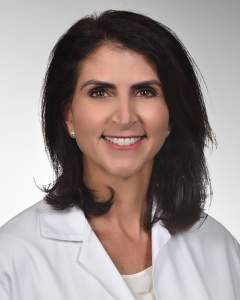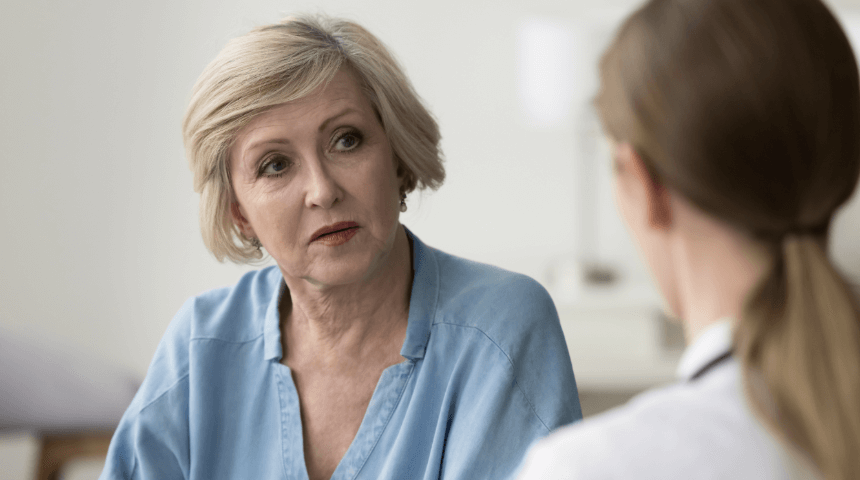If you’re past menopause, you might worry every time you trip or even bang an arm forcefully. Older women have a greater chance of osteopenia, which means your bones are less dense than is ideal, or the more advanced osteoporosis, where your bones are weaker yet and possibly brittle. Either way, your bones are more likely to fracture than in the past.
A technology called trabecular bone score is growing in popularity because it provides extremely detailed information that will help you decide how to keep your frame strong.
How Trabecular Bone Scores Will Help You
Until a few years ago, doctors had only one way to get an idea what shape your bones are in: a bone density test, also known as a DEXA or DXA scan. It’s a painless measurement of your hip and lower spine that reveals how porous your bones are. The information gathered leads to a report called a FRAX score, which rates your chance of getting a fracture within 10 years.
Now, with a trabecular bone score (TBS) in addition to a bone density test, you can learn way more about what shape your bones are in. That, in turn, will tell you how likely your bones are to fracture if you fall or hit a hard object.
Bone is made up of two types of tissue: trabecular and cortical. Cortical bone is the denser outer layer, and trabecular bone is the more porous inner layer. The trabecular bone score looks at connections of the longer, or trabecular, bones of the lower spine. The results estimate your actual bone geometry and texture, and even its microarchitecture. That’s crucial because the microarchitecture gives a picture of your bones’ composition, and therefore of how weak they are. Bones with the same bone density score might be weaker or stronger depending on their composition.
TBS is one crucial part of the complete clinical picture. So many elements factor in, including your lifestyle, if you’ve had a spine or hip fracture already, and if there is a family history of osteoporosis and hip fractures. Blood and urine tests might also show your bone turnover markers, which are other important pieces of information.
To get your trabecular bone score, you simply request a prescription for TBS along with a DEXA scan, then book an appointment at a facility that has the TBS software on its bone density scan machines. Then your doctor will have the complementary insights from both tests.
How To Use the Info
Once a medical expert sees both DEXA and TBS results and assesses the detailed synopses of your current bone structure, you’ll have a clearer picture of your fracture risk. That, in turn, will help you decide whether lifestyle and diet changes are enough to keep your bones fairly strong, or if you’ll need to take a bone-strengthening medication.
If your bone density and microarchitecture indicate that your bones aren’t extremely fragile, you might be advised to start, or maintain, lifestyle actions such as:
- Walk or do other weight-bearing exercise regularly
- Do resistance-training exercises with weights or resistance bands
- Do balance exercises such as yoga and tai chi
- Don’t smoke
- Drink no more than seven glasses of alcohol a week
- Eat a balanced diet
- Get enough calcium and vitamin D in your diet and/or supplements
If Your Bones Needs Pharmaceutical Help
However, if the dual data shows that your bones are likely to fracture upon impact, you might be advised to take one of many medications on the market designed to keep your bones from getting weaker or even to strengthen them. This is also the case if you’re on certain steroids or anti-depressants, or have type 2 diabetes or rheumatoid arthritis, as those conditions put you at higher risk for fractures.
The medications have pros and cons, and are designed to help your spine and hips in different ways. Make this decision together with a doctor who specializes in bone health.
Since humans’ bones tend to weaken as we age, it’s best to choose lifestyle actions aimed at keeping your bones as strong as possible. But genetics, diet, lifestyle, chronic conditions and various medications can weaken your frame. If you have both a trabecular bone score and a DEXA scan done, your doctor will know enough about your bones to guide you to the next step.
The goal is preventing bone loss and bone breaks. With the results, you’ll know for sure if it’s enough to continue eating well and exercising until your next DEXA scan only, or if you should also take targeted drugs meant to keep your bones from getting weaker or even designed to make them more robust.
Choose to Stay in Touch
Sign up to receive the latest health news and trends, wellness & prevention tips, and much more from Orlando Health.
Sign Up





